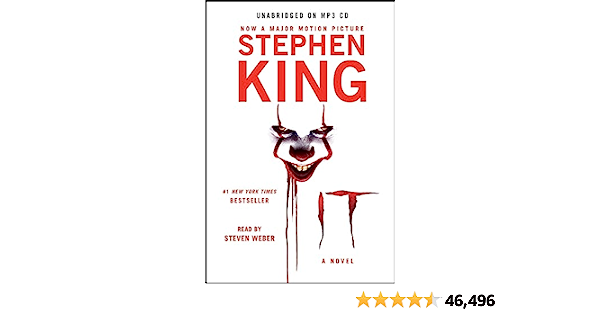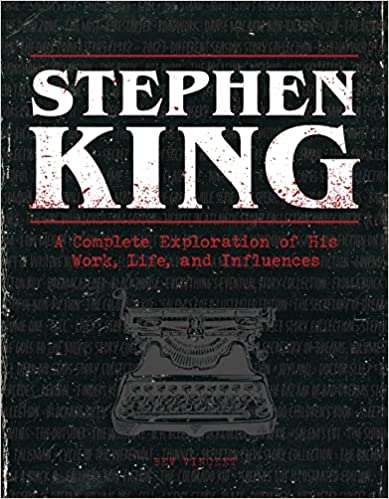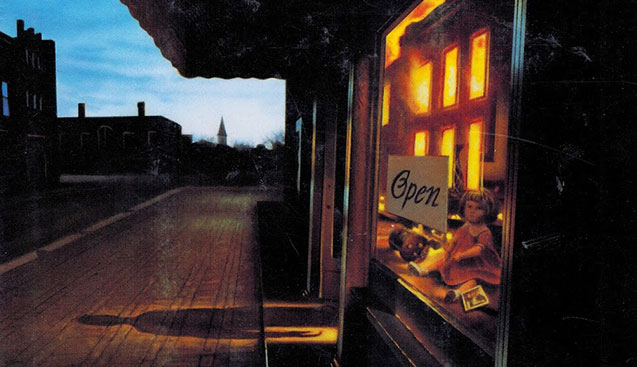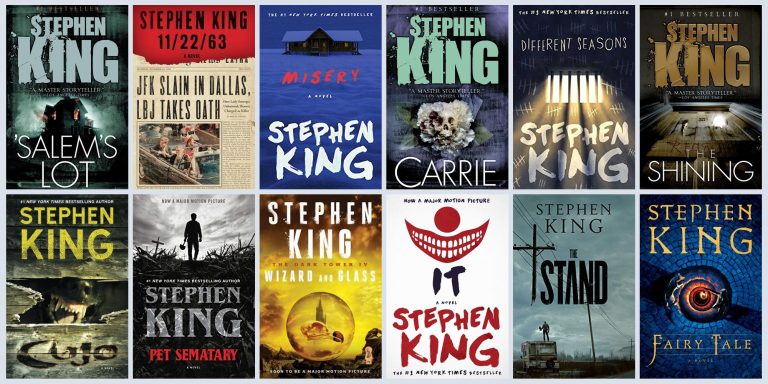What Are Some Stephen King Books With Political Themes?
If you’re a fan of both Stephen King and politics, you’re in for a treat! Stephen King, the master of horror and suspense, has penned several books with political themes. These novels not only provide thrilling and chilling tales but also offer insightful commentary on our society and political landscape. In this article, we’ll explore some of Stephen King’s most notable works that delve into the realm of politics, captivating readers with their gripping narratives and thought-provoking messages.
Stephen King is renowned for his ability to create compelling stories that resonate with readers on multiple levels. His books often tackle complex themes, and politics is no exception. From exploring the corrupting influence of power to examining the consequences of societal divisions, King’s novels offer a lens through which we can examine our own political realities. Whether you’re a die-hard fan or new to his work, join us as we delve into the world of Stephen King’s politically charged novels and discover the thought-provoking tales that lie within. So, grab your favorite Stephen King book and prepare to be enthralled by the intersection of horror and politics.
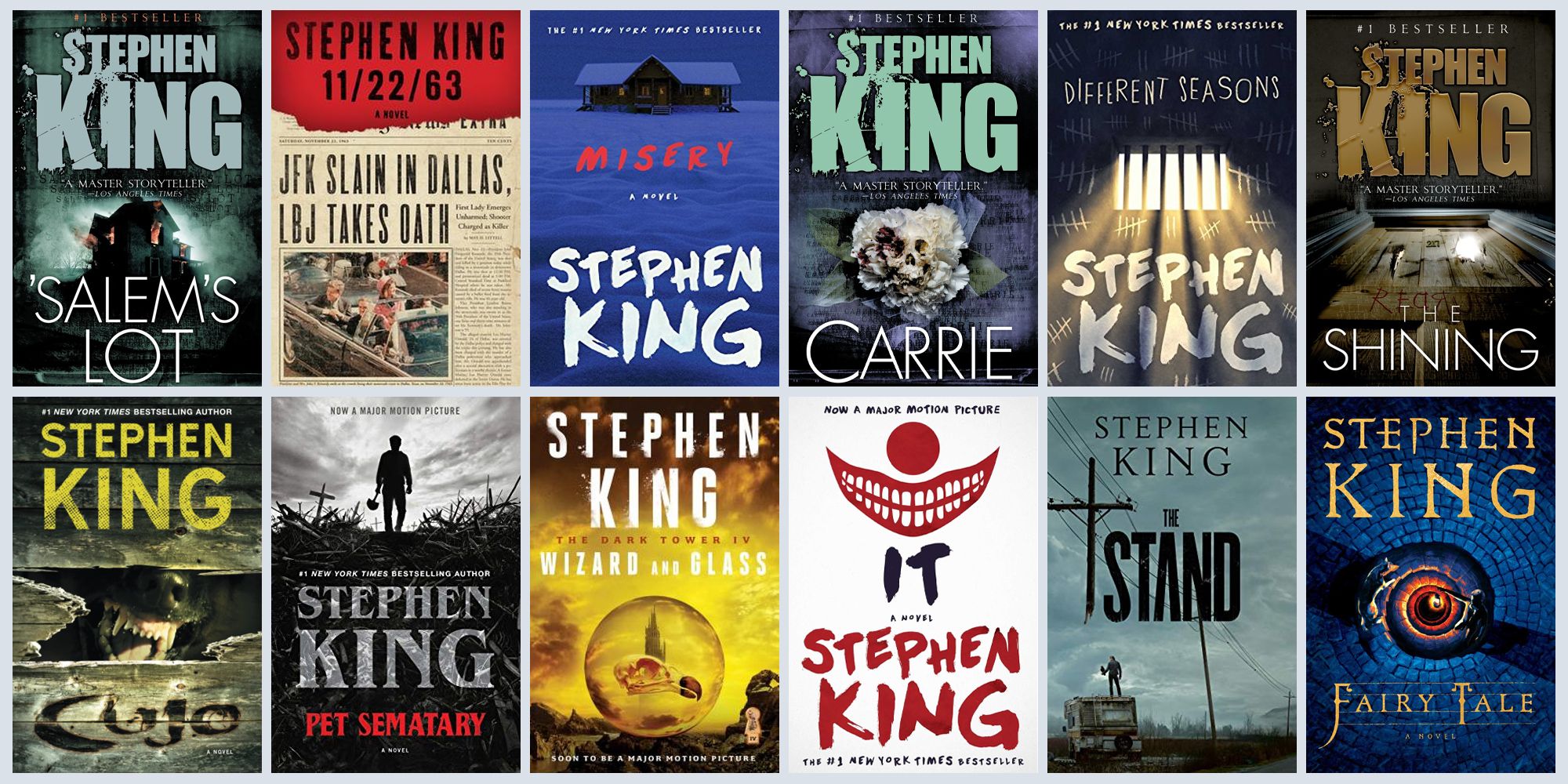
Stephen King Books with Political Themes: Exploring the Master of Horror’s Social Commentary
Stephen King is renowned for his ability to captivate readers with his thrilling and terrifying tales of horror. However, beyond the scares and suspense, King often weaves in thought-provoking political themes into his stories. Through his writing, he delves into the complex and sometimes sinister workings of society, offering insightful commentary on various political issues. In this article, we will explore some of Stephen King’s books with political undertones, shedding light on the social messages embedded within his captivating narratives.
The Stand: A Post-Apocalyptic World Reflecting Societal Struggles
In “The Stand,” King vividly paints a harrowing picture of a world devastated by a deadly pandemic. As survivors emerge from the ruins, a struggle for power ensues, highlighting the flaws and corruption that can arise in the face of a crisis. Through the compelling characters and their interactions, King explores themes of leadership, governance, and the potential dangers of unchecked authority. He delves into the fragility of societal structures and the choices individuals make when faced with dire circumstances.
Within the pages of “The Stand,” King reflects on the human condition, offering a critique of political systems and the impact they have on society. Through his masterful storytelling, he challenges readers to question the status quo and contemplate the consequences of political decisions in times of crisis. The book serves as a cautionary tale, urging us to examine the structures and values that underpin our world.
America’s Dark Past: Unearthing Historical Political Horrors
In many of his works, King draws inspiration from real-life events and historical periods to shed light on the darker aspects of American politics. For example, “11/22/63” explores the assassination of John F. Kennedy and its far-reaching consequences. By delving into this pivotal moment in American history, King raises questions about the impact of political decisions and the potential for change, both positive and negative.
Similarly, “The Dead Zone” delves into the political landscape of the 1970s, touching on themes of power, corruption, and the moral dilemmas faced by individuals in positions of influence. Through the story’s protagonist, Johnny Smith, King explores the consequences of political choices and the responsibility of individuals to stand up against injustice.
In these books, King uses the lens of political history to examine the present and prompt readers to consider the lessons that can be learned from the past. By intertwining fiction with reality, he offers a unique perspective on the political landscape and encourages readers to engage critically with the world around them.
Salem’s Lot: Vampires as Metaphors for Social Decay
In “Salem’s Lot,” King takes the classic vampire tale and infuses it with political undertones. The town of Jerusalem’s Lot becomes a microcosm of society, with the spread of vampirism serving as a metaphor for the deterioration of social order and the consequences of unchecked evil. Through his vivid descriptions and multi-dimensional characters, King explores themes of prejudice, fear, and the destructive power of apathy.
By using vampires as symbolic representations of societal decay, King invites readers to reflect on the dangers of indifference and the importance of active participation in the political process. He challenges us to confront our own biases and confront the darkness within ourselves and society as a whole.
The Dark Tower Series: An Epic Saga Tackling Existential and Political Questions
The “Dark Tower” series, spanning eight books, delves into a vast and intricate universe that blends elements of fantasy, science fiction, and Western genres. Within this expansive narrative, King tackles profound existential and political questions. The protagonist, Roland Deschain, embarks on a quest to reach the eponymous Dark Tower, representing the center of all existence.
Throughout the series, King explores themes of power, destiny, and the consequences of actions. He raises questions about the nature of leadership, the pursuit of power, and the impact of political decisions on individuals and the world at large. By intertwining complex world-building with thought-provoking philosophical musings, King creates a compelling tapestry that invites readers to ponder the intricacies of politics and existence itself.
Stephen King’s Enduring Impact on Political Commentary in Literature
Stephen King’s ability to seamlessly integrate political themes into his stories has solidified his position as a master storyteller and social commentator. Through his captivating narratives, he challenges readers to confront the complexities of the political landscape and the consequences of our collective actions. Whether exploring apocalyptic scenarios, historical events, or supernatural realms, King’s works serve as a mirror to society, encouraging us to critically examine the world around us.
As readers immerse themselves in the rich tapestry of King’s books, they are confronted with the harsh realities of politics and the potential for both corruption and redemption. His stories remind us of the power of literature to inspire change and provoke meaningful discussions about the societal issues that shape our lives. Stephen King’s books with political themes continue to captivate and resonate with readers, leaving an indelible mark on the literary landscape and our understanding of politics.
Key Takeaways: What are some Stephen King books with political themes?
- Stephen King’s “The Dead Zone” explores the consequences of political power and the dangers of a corrupt politician.
- In “The Running Man,” King delves into a dystopian society controlled by a totalitarian government.
- “The Stand” showcases a post-apocalyptic world where society’s collapse reveals political and social struggles.
- King’s “Under the Dome” examines the dynamics of power and leadership within a small town trapped under a mysterious dome.
- “11/22/63” centers around time travel and the attempt to prevent the assassination of John F. Kennedy, intertwining politics with history.
Frequently Asked Questions
In this section, we will explore some of the Stephen King books that delve into political themes. Stephen King is known for his ability to incorporate social and political commentary into his stories, creating a thought-provoking reading experience.
1. Which Stephen King book explores the theme of political corruption?
In the novel “The Dead Zone,” Stephen King explores the theme of political corruption. The story follows Johnny Smith, a man who gains psychic abilities after awakening from a coma. As Johnny tries to navigate his newfound powers, he becomes entangled in a high-stakes political campaign. Through this narrative, King delves into the dark underbelly of politics, highlighting the potential for corruption and the consequences it can have on individuals and society.
Additionally, “The Running Man” is another Stephen King book that touches on political corruption. Set in a dystopian society, the story revolves around a man named Ben Richards who participates in a deadly game show to earn money for his family. As he fights for survival, King explores the oppressive nature of the government and its manipulation of the media for political gain.
2. Are there any Stephen King books that address the theme of authoritarianism?
Stephen King’s “The Stand” is a novel that tackles the theme of authoritarianism. The story takes place in a post-apocalyptic world where a deadly virus has wiped out most of humanity. As survivors gather and form new societies, a power struggle ensues, and a charismatic leader named Randall Flagg emerges. Through this narrative, King examines the dangers of unchecked power and the lengths people will go to maintain control.
“Under the Dome” is another Stephen King book that explores the theme of authoritarianism. It tells the story of a small town that becomes mysteriously trapped under an invisible dome. As the town’s resources dwindle and tensions rise, a power-hungry politician takes advantage of the situation, showcasing the destructive nature of authoritarian rule.
3. Which Stephen King book deals with political conspiracy?
In the novel “11/22/63,” Stephen King delves into the theme of political conspiracy. The story follows Jake Epping, a high school teacher who discovers a portal that leads to the past. Jake embarks on a mission to prevent the assassination of President John F. Kennedy. Through this gripping tale, King explores the complexities of time travel and the consequences of altering history, shedding light on the conspiracy theories surrounding JFK’s assassination.
4. Are there any Stephen King books that explore social justice issues?
“The Green Mile” is a Stephen King book that delves into social justice issues. The story takes place on death row in a Southern prison and follows the lives of the inmates and the guards. King tackles themes of racism, injustice, and the abuse of power, shining a spotlight on the flaws within the criminal justice system.
5. Which Stephen King book addresses the theme of fear-mongering politics?
“The Tommyknockers” is a Stephen King book that addresses the theme of fear-mongering politics. The story revolves around the discovery of a mysterious object in a small town, which gradually affects the residents and leads to chaotic events. Through this narrative, King explores the manipulation of fear for political gain and the destructive consequences it can have on individuals and communities.
Stephen King Reveals His Top Five Stephen King Stories
Final Summary: Discovering the Political Themes in Stephen King’s Books
As we delve into the captivating world of Stephen King’s literature, we uncover a hidden layer of political themes that adds depth and complexity to his stories. Throughout his prolific career, King has masterfully woven political undertones into his novels, offering readers a unique blend of thrilling suspense and thought-provoking social commentary. From “The Dead Zone” to “The Running Man,” King’s works not only entertain but also challenge our perspectives on power, corruption, and societal issues.
In exploring the political landscape within King’s books, we find ourselves immersed in a world where ordinary individuals are thrust into extraordinary circumstances, forced to confront the consequences of political decisions and the impact they have on society. Through his vivid storytelling and compelling characters, King holds a mirror up to our own world, urging us to reflect on the political systems that shape our lives. Whether it’s the examination of authoritarianism in “The Stand” or the exploration of media manipulation in “The Dead Zone,” King’s narratives shed light on the multifaceted nature of politics and its far-reaching implications.
In conclusion, Stephen King’s books with political themes not only entertain us with their gripping plots and unforgettable characters but also invite us to critically analyze the political landscape in which we live. By seamlessly integrating political commentary into his stories, King challenges us to question the status quo and consider the impact of political decisions on our lives. So, the next time you pick up one of his novels, prepare to be captivated, thrilled, and provoked as you embark on a journey through the intertwining realms of fiction and politics.

